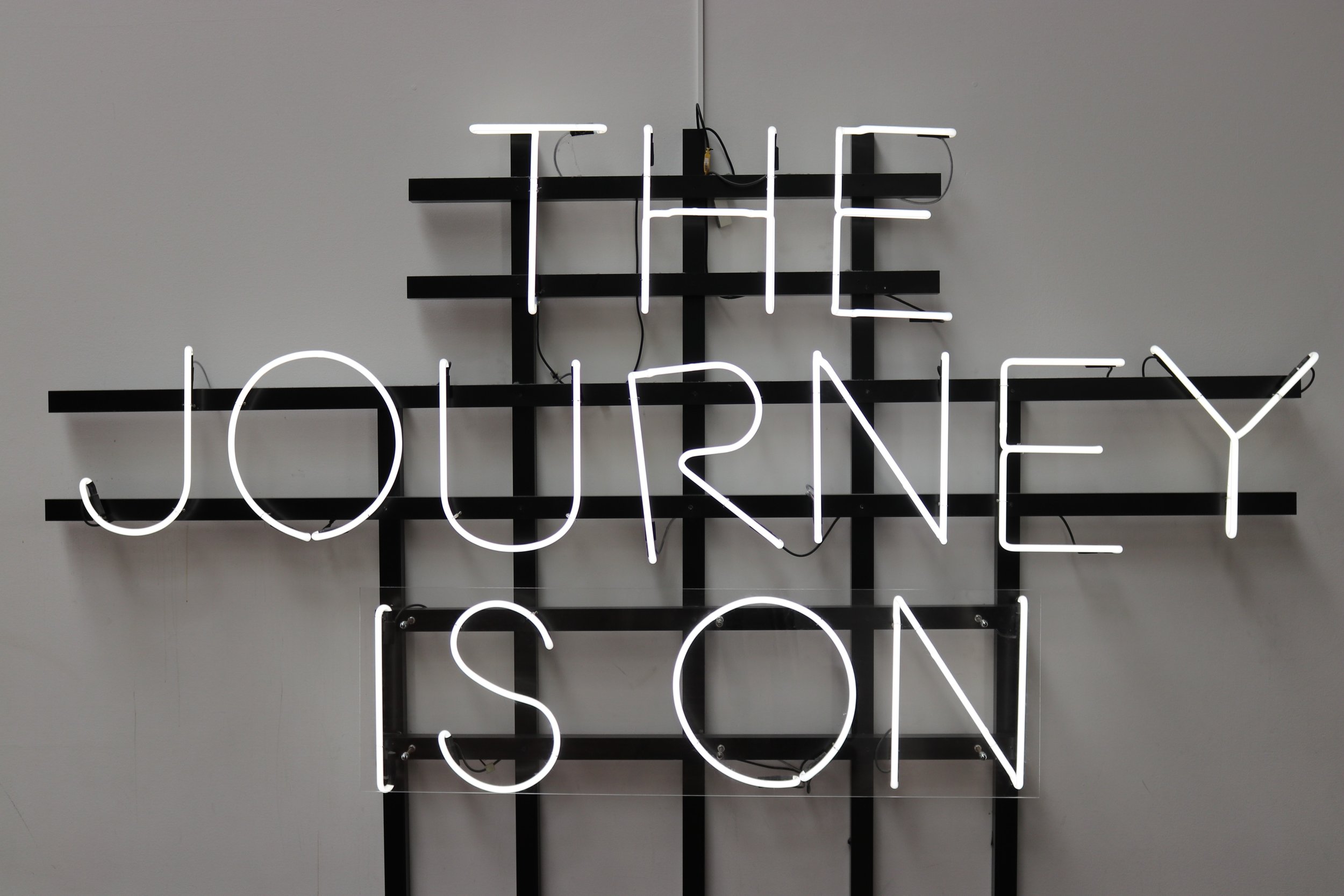When even a little of your life’s work or heart’s desire gets clearer, you suddenly want to move toward it fast, right? The thing you’ve been wanting to feel, the electricity, the flow, the zzZZZZZZZzzzzzz, you finally feel it, and if you’re anything like me, you want to move toward it at top speed. And then, something pops up in the road that slows you down; it grinds you to a halt, and forces you to be still, to wait, to do nothing.
For me, that thing is bronchitis. I know, it doesn’t sound so bad if you’ve had it or you know what it is, but just because it has a common name doesn’t mean it won’t take you out like a first-string middle linebacker.
This might make a better story if I told you that I’d been working myself to the bone, that I’d been spending shift after shift in the hospital praying with families who were losing loved ones, that I’d baptized five babies and laid to rest five more, that I’d presented three verbatims, and that I’d provided staff care for nursing staff on six different units, all in the span of a week! (And really, if you’re not a hospital chaplain, by now you’re rolling your eyes.) But none of that is true. My first week of work in May was pretty average: I did help facilitate some staff care on a couple of ICUs, and I co-facilitated a community health center spirituality group in which no one showed up. By the end of the week, though, I could feel that telltale sweat/chills/ache that said something bad was coming, and I spent most of the weekend in bed. I missed three days of work this past week to this infection. I came in on a Tuesday when I should have stayed home, and I came in on a Wednesday because I didn’t want to miss more education. My colleagues and supervisors all wore an expression of concern and incredulity when we talked: they looked at me like, woman, what are you doing here? You sound terrible and you look worse. It’s not that deep, go home.
I’m often a worker who believes in boundaries. My phone doesn’t ring after 9 pm because that’s how I set it up, and that’s how I like it. If I can at all help it, I do all my CPE writing at work, so that when I’m home, I can enjoy being there, and spend my time the way I choose to. When my colleagues are in need of time to tend to their lives—they’re sick, or injured, or a loved one has died—I’m big into them placing their attention where it belongs and picking up their slack. But somehow, when I was sick, I couldn’t show up this way for myself. I was stunned, honestly. I was embarrassed. It took several folks worrying over me to help me understand that this wasn’t something I could power through. What was at work in me that made me keep trying to pretend I wasn’t as bad off as I was? When I finally got home and was still, the rip tide of illness took me. My throat was on fire. My chest and belly were ceaselessly heaving and sore with coughs that buckled my entire body. My skin was clammy and greasy. My voice was hoarse, if it was there at all. I got tired getting up to change my pjs or just make tea. It was bad. Few times in life have I slept so much and still felt so tired.
I went to urgent care, and while I was there, I flashed back to the last time I was a child and was this sick. As a girl, I was desperately afraid of the throat culture: a nurse, armed with a Q-tip the length of a pencil and the circumference of a marble stuck a wooden popsicle on your tongue and went on the hunt for your tonsils. She would wipe over and over and over with her swab, and it was all I could do not to puke all over her shoes. I sat there and saw that nurse come in with the swab, and I was instantly ten years old, and started apologizing for whatever would come next. The, nurse, bless her heart, believed me when I told her I’d try not to boot, and she wheeled the laptop out of the room and out of the splash zone. Fortunately, the process has changed over the last 30 years. No more tongue depressors, and the touch is evidently a lot less precise. I managed to do a strep test and a throat culture without redecorating her scrubs, myself, or the room.
Parts of me have asked, in the haze of fever dreams, when did I get sick? How was I exposed? What caused this to happen: did my acupuncture loose something? Is this a healing crisis? I did a lot of energy work, do I need a cleansing? But I’m not sure how much any of the answers to these questions matter; what feels important is the stillness I must practice in getting well.
Stillness is not my favorite. I am a big woman with a big personality and a big reservoir of energy. So being still feels like I don’t care. It’s also worth saying, and it only occurs to me now, that there have been moments in my life when other people, white people or older people, people with more power than me, have perceived my stillness as a kind of flaw, some indicator that I don’t want it bad enough or I’m not serious, that in order to prove my worth and my capacity I must always be doing. Now, I’m able to look back and feel compassion for that poor younger version of myself who was always trying to prove, and to tell those folks who felt I didn’t jump fast enough to go kick rocks. But is that anxiety of proving myself still at work?
A friend and colleague in my cohort helped me surface an idea that I hold: if I’m not hustling or working or doing something, then I am sure (read, afraid) that something bad is going to happen. If I take my hands off the wheel, if I don’t work, if I am still and surrendered, Spirit is not going to bless me, but instead only ruin and desolation are mine. Can you imagine? What room is there for grace in this as a worldview? It sounds so Protestant and hard working: God helps those who help themselves, so get out there and do it, because you only get a blessing by earning it. Another colleague and friend reminded me of a member of the Major Arcana in the Tarot, a tool of reflection, insight, and/or divination: The Hanged Man.
The Hanged Man from Black Tarot by Nyasha Williams and Kimishka Naidoo.
This is my favorite rendering of the Hanged Man that I’ve seen so far. According to the Rider-Waite-Smith version, the card reflects a masculine-presenting person, caught by the leg in some kind of noose or trap, hanging upside down from something, and looks pretty chill about it. This is not a domestic terror act-cum-neighborhood picnic, and it’s not state-sanctioned murder; this is just a somebody who’s gotten scooped up, who can’t get untangled, and who’s just gonna relax and wait a while. This hanged man is female-presenting, has gorgeous locs (#hairgoals), and seems expressive in her suspension: she’s taking this time and making it creative, because what else would you do when suspended by silks, except see what kinds of cool shapes you can make with your body?
So I finally, finally feel like I’m in my zone, and I start to move forward, and I get grounded by a bronchial infection that makes me too tired to do much of anything. For days. I am forced, not just into energetic stillness, but into bodily stillness. I haven’t been back to work yet, so we’ll see what happens on Monday. But it would seem that there’s a new era, a new level, of stillness I need to practice. What will happen if I’m still? What will I miss out on? Will ruin and desolation come for me the way I fear they will? (I mean, eventually, because that’s part of the human experience right, but not like, tomorrow.) I don’t know what lessons stillness has to offer me. But I’m getting the signal loud and clear that it’s time to stop moving and just practice being still.







